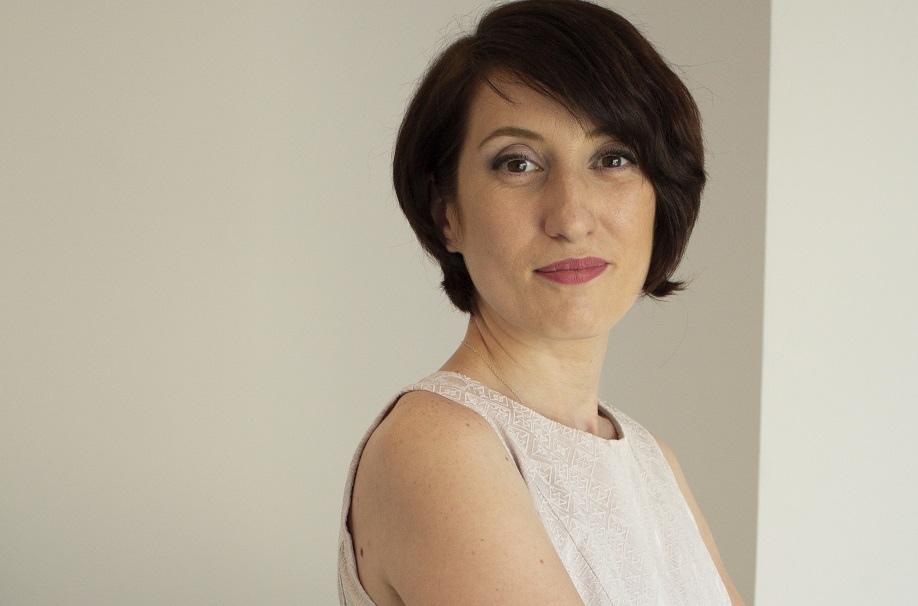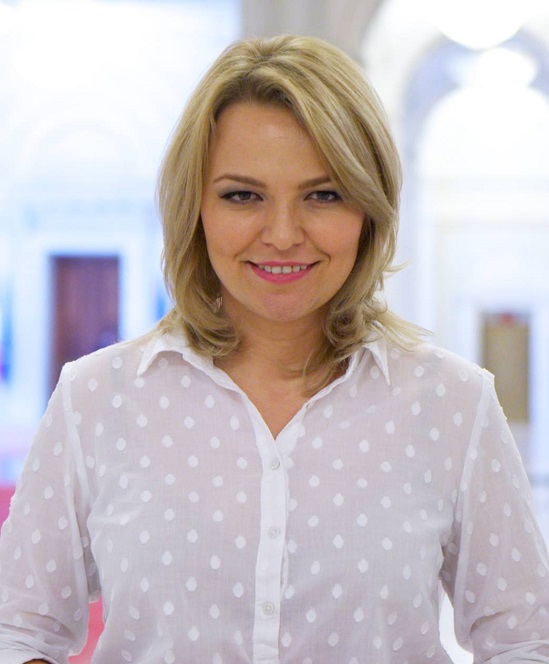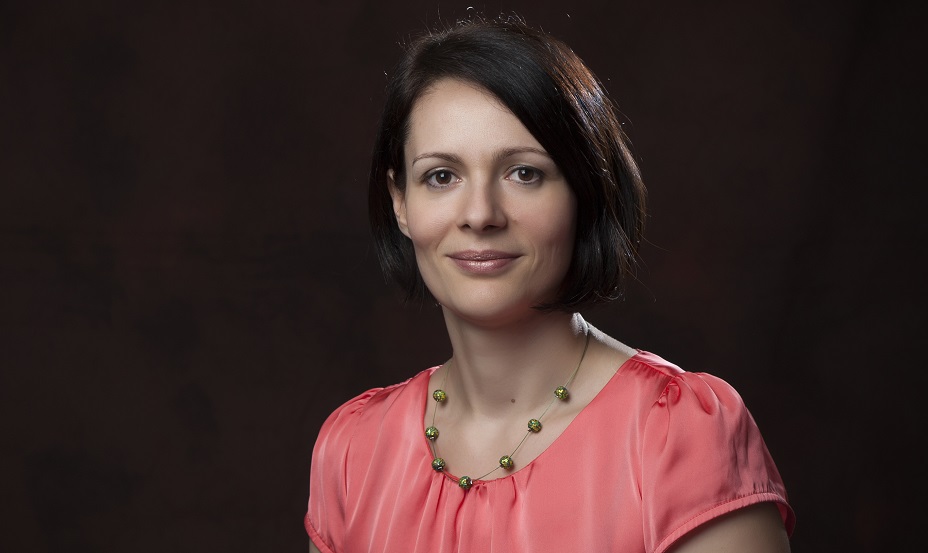:quality(80)/business-review.eu/wp-content/uploads/2019/07/coaching-DT.jpg)
At an international level, the coaching market continues to grow – the 2016 ICF study noted 53,300 coaches globally, a 12 percent increase from 2012, and valued the industry at an estimated USD 2.4 billion and growing. Moreover, according to PwC, the coaching industry was the second fastest growing sector in the world.
By Romanita Oprea
The International Coaching Federation (ICF) defines coaching as “partnering with clients in a thought-provoking and creative process that inspires them to maximize their personal and professional potential.” Coaching is a distinct service and differs greatly from therapy, consulting, mentoring, or training. The ICF describes itself as the leading global organization dedicated to advancing the coaching profession by setting high standards, providing independent certification and building a worldwide network of trained coaching professionals. As the world’s largest organization of professionally trained coaches, it offers the only globally recognized, independent credentialing program for coach practitioners. ICF credentials are awarded to professional coaches who have met stringent educational and experience requirements and have demonstrated a thorough understanding of the coaching competencies that set the standards in the profession, says the organization.
According to the federation, in 2011 there were 53,300 coaches, up from 47,500 part-time and full-time coaches worldwide. About 92 percent of them are active. Of these, 33 percent operate in the United States – a total of 17,500 coaches. “I expect the market value to reach USD 1.34 billion by 2022 – or a 6.7 percent average yearly growth rate from 2016 to 2022. The biggest challenge facing coaches today is that untrained and incompetent coaches are damaging the reputation of the industry. The coaching field is unregulated. No license is required. Currently, there are more than 500 training and ‘certification’ programs worldwide, and many of them will certify you if you simply pay them a fee,” John LaRosa wrote for marketresearch.com.
Commentators say the potential benefits of coaching for employees include: better decisions, clearer goals and roles, increased self-awareness, more ideas and options, better relationships, better teamwork, reduced conflict, and renewed organizational commitment. Potential benefits for the organization include: improvements in productivity, quality, organizational strength, customer service, and shareholder value. Moreover, when coaching produces better alignment between personal and organizational values and goals, the results often include increased job satisfaction and organizational commitment and improved performance.
Locally, there are 150 current members of the International Coach Federation Romania, meaning 150 professionals have chosen to train themselves and learn the skills of the coaching profession. They are well trained in the 11 core competencies and the code of ethics. But what is the industry’s level?
According to Adela Iepure, professional certified coach (PCC), trainer and facilitator, if one were to compare the demands of multinational companies for training and coaching services today with those five or ten years ago, one would see more explicit requests for coaching. “In terms of coaching schools, you can clearly see a more robust offer on our market: every year new coaching schools are coming up and new and more sophisticated programs are offered. If five to ten years ago you could choose from two or three options locally, now you have a very rich offer of formal professional development in the coaching field,” said Iepure. Moreover, she has also noticed a trend among those attending coaching schools: while a few years ago participants were largely looking to change careers and become coaches, now a lot are attending formal coaching training not to change profession, but to add meta skills to their existing profession (e.g. lawyers, music business professionals, HR professionals, project managers, sales managers, etc).
Meanwhile, Alina Tabusca, marketing coach & consultant at Coach4Marketing, emphasizes two different aspects: coaching in Romania as a service offered for the local market and coaching in Romania as an international coaching provider. “A market can grow horizontally, by overall service coverage, and vertically, by addressing specific niches or service types. Horizontally, I consider coaching to still be in a penetration phase, although most of the big competitors are still fighting over the same market segment. Business coaching relates to the business market and mainly the businesspeople emerging from it, and I can see that more and more entrepreneurs, intrapreneurs and managers rise nowadays to take their companies or teams to the next level,” said Tabusca.

But turning to local coaches serving international markets, the Coach4Marketing representative considers this a different discussion. This is an emerging market, with very few coaches practicing outside the country. However, she believes that as the average age of coaches has decreased in recent years, this type of service will grow. More and more managers decide to go from coaching their teams to coaching at a larger scale, and these are managers that are used to working in a multicultural and international environment, taught to think and strategize globally. “A great addition is the increase of online content consumption, which is an indicator of openness to grow,” commented Tabusca.
At the same time, Mihaela Reese, leadership executive coach, thinks that a shift is happening as some managers have already had the courage to invest in team coaching next to individual coaching, and are willing to make efforts to get a truly collaborative, supportive and effective work environment. “I personally see this as a cultural shift in the leading style in Romania. I also often observe that coaching is presented as a ‘repair’ tool. This may be why people are afraid to be sent to a coach. Companies need to learn to integrate coaching as a growing and development tool more than anything else. Coaching is great for anybody looking for ideas, resources, perspectives, clarity and/or more. We all need these at different times, not only when we are in trouble,” said Reese.

Specialized services
But are firms in Romania opening up to these services? What type of coaching is most sought after and why?
“I see more and more companies open for coaching in Romania. We have several clients we supported in developing a coaching culture in their organization. This involved coaching trainings, workshops and individual coaching sessions. Companies recognize the typical top down communication is not enough and want to engage the staff on all levels. Coaching is here a very good approach. Executive coaching is a high investment in a person and I think hiring an external coach will be also in the future mostly financed by the company for upper management positions, high potentials and key people. My coaching projects are mainly for executives and the topics are very different. I don’t see a trend here in the last years,” said Petra Müller-Demary, accredited senior coach & founder Solution Surfers Romania. She works in a solution focused way which is proven to bring sustainable results in a shorter time. It builds on what is working already, discovering resources and assuming change is happening all the time anyway. This gives clients a lot of confidence and energy to move forward. Demary’s clients come mostly for 5 – 6 sessions.
As coaching continues to grow as a profession, the expectations of clients grow too. “They demand results from coaching. They will not tolerate coaches – internal or external – that do not get results, that use jargon, that do not have a clear path to results, that are what we call ‘lightweight’. Companies present in Romania are very open to receiving professional coaching services, sometimes called leadership, executive, management, high-potential, career, development plan, team or corporate coaching. Companies seem to love to make up new terms, and I am sure I have left out some possibilities,” said Daiana Stoicescu, master certified coach (MCCT), coach supervisor and a registered ICF mentor coach. She is also the president and member of the board of directors of the ICF Romania Chapter.
Daiana Stoicescu: Coaching solves specific problems. Common challenges:

- My team is not working well together
- We need a strategy
- We need a succession plan
- I received feedback that I need to correct
- I need to change the culture of my company
- I need more leadership presence
- I need to influence people
- I need to manage my time better
- I need to develop more leaders
- I am not getting along well with my manager
- I want more accountability from my people
- We need to improve our revenues and profits
In her turn, Iepure says that most requests are coming to her from multinational companies. They want either training in coaching skills for middle managers and executives, explicit individual coaching services, especially for managers in career transition or key people dealing with complex changes or challenging projects, or team coaching requests to improve internal efficiency, self-organization and stakeholder management. “International coaches are usually more frequently requested for CEOs and other top executives. Often expats are already working with coaches when they join Romanian teams and they prefer to stick with those partnerships. But we now have very good Romanian coaching professionals with sound backgrounds that are serving these layers of top executives as well,” added Iepure.
Elsewhere, Reese believes that the most popular type of coaching in Romania is probably individual coaching, which follows a training program, often around leading people. “Companies are frequently linking coaching to implementing certain behaviors or models (communication, meetings, managing teams, time, etc.). There is still a huge need to take coaching as a development tool in its true meaning. This means to create the coaching space and time for the person to deeply look for his or her own solution and resources, and devise a personal strategy,” commented Reese.
“The most frequent service is business coaching. This is partly because the top managers come from international cultures, where coaching is a norm, and were open and even used to receiving this type of support. Another reason is that large companies have a development plan that includes top-down growth in terms of culture and productivity, and business coaching is the best way to do this. As a niche for this type of service, coaching for mom-entrepreneurs or marketing coaching are new but increasing in awareness and demand,” said Tabusca.
Prior to working with a coach, a person should know that the field of professional coaching (with all of its subsets: executive coaching, leadership coaching, life coaching, business coaching, etc) is not yet regulated like law or medicine, which means anyone can call her or himself a coach even without relevant training, experience or skills. “So to separate the professionals from the masses, you can start your search by homing in on coaches that have chosen to pursue – and earned – a credential from the ICF. In lieu of government regulations, the ICF has established professional standards for coaches and introduced a robust evaluation process for awarding credentials, which saves you time in searching for a coach that has the relevant training, experience, and skills,” explained Stoicescu.
Moreover, all ICF-credentialed coaches are expected to adhere to the ICF Code of Ethics, which includes commitments to professional conduct, continuing professional development, maintaining client confidentiality and so on. Should an ICF-credentialed coach breach any part of the Code of Ethics, a complaint may be filed with the ICF, which is a reassuring recourse from a client standpoint in case anything goes awry.
“The coach-client fit is very important for the effectiveness of the coaching engagement. So at this point in the coach selection process, after reviewing the coaches’ websites, you can do a gut-check to get a sense of who you feel you might resonate with and then reach out to those who make the cut for an initial conversation. During the initial call (or meeting) check whether you feel you can trust this person, whether you’ll be safe being completely honest and vulnerable with her or him. If you can’t, you know the coaching won’t be as transformative as it could be,” added the ICF Romania president.
Meanwhile, Iepure says she would encourage the person to look for professionals that were evaluated internationally and had a credential and see two or three people to choose from. Then she would encourage the potential client to reflect on their need and have a clear intention or objective for the coaching process.

“Choosing a coach depends primarily on the need you are trying to address, but also the reason why you want a coach. But if we refer specifically to what you should look for in a coach, I would say relevant experience for what you want to work on. Having seen multiple working styles helps a coach in adapting to yours and making a customized plan that will help you reach your goal. Another key criterion are values like yours. It’s hard to work with somebody that you do not trust. And if you do not trust them, you might be tempted to prove them wrong more than to apply what you learn,” commented Tabusca.
On her turn, Petra Müller-Demary believes that one should ask oneself what are her ‚his best hopes for a coaching project. What would he /she like to be different afterwards? She encourages you to speak with people who have worked with a coach about their experience and what was useful for them. „Look for coaches and recommendations. Meet with some coaches and see is you have a good connection and trust the person can support you. There are many different coaching styles and methods. I compare this to the variety of restaurants. You can eat Italian, Romanian, vegetarian, Argentinian stake and many more. All are nourishing. The same is with coaching. There are many ways and methods and a good coach should always we supporting you in your development. And I trust the client will know best what fits to her/him at a certain moment in time,” added the Solution Surfers Romania’s representative.
Does Romania have really good professionals in the field and can one talk about an inflation of coaches or not? While the ICF Romania currently includes four master certified coaches, 21 professional certified coaches and 55 associate certified coaches, Iepure believes that we do not yet have coach inflation. “There is a lot of space for working and creating a market: the entrepreneurial zone, public sector, education. Romanian culture needs an infusion of the coaching mindset: autonomy, accountability and efficiency are still in high demand and the more professionals we have to infuse this mindset the more we can create change that is sustainable,” added Iepure.
On her turn, Petra Müller-Demary doesn’t think we have an inflation of coaches. And her question would be: who is a coach? „I know in Romania and internationally very few people who live 100 percent from coaching. I also don’t do only coaching and I don’t want to. Most of the coaches (and I mean people who did a coaching school) I know are offering serviced that are related to coaching and do beside individual coaching also training, faciliation of personal development topics, team coaching etc. The coaching skills they have developed influence their style of working and interaction with their clients on many levels and here is where I believe we need much more coaches,” said Petra Müller-Demary.
Moreover, she considers that we need much more people who are aware of their own motivation, interaction and impact they have on others. People who are skilled in guiding constructive conversations that empower people. „Here I see still a big gap and a huge need for development. The participants of my coaching training often record their relationship and communication to their partner and children has improved significant through the training. They don’t coach their family, but they are more aware of how they can guide a constructive conversation. Yes, we need an inflation of people who are self-aware and skilled!”, concluded Demary.
According to Reese, there is now a more professional cohort of coaches, and companies are starting to appreciate this. She regularly sees the ICF standards being requested by companies when they hire a coach, which is also a sign that the market is maturing from both perspectives: demand and supply. “If companies are truly looking for coaches who respect internationally recognized standards, they know how to find them. There are not too many yet, so there should be no inflation from this perspective for the years to come,” added Reese.
In turn, Tabusca pointed out that it is not always about the training you do, but the quality of your practice. And sometimes the market standards will determine the quality a coaching service has to rise to, which is where she hopes Romania will soon get to as a local market. “I believe coaching is booming and sometimes people choose coaching because it sounds fun, not because they see the depth and involvement of this field. But this happens with every new job that is not fully regulated. I do believe, however, this is a field that regulates itself. If you are a poor coach, the competition will catch up sooner rather than later. So I choose to see the full half of the glass. We have a lot of coaches to choose from. This will give Romania a very good generation of coaches in the next year, as the current interest trims,” concluded the Coach4Marketing representative.
2019-2020 trends
The industry-wide research study Executive Coaching by the ICF surveyed nearly 1,000 organization coaching practice managers, internal coaches and external coaches on a variety of topics. All respondents agreed that leadership development programs with additional coaching will most likely be the ensuing trend over the next few years. “This matches my own experience. I see more organizations designing coaching into existing leadership development programs. On average, leader-as-coach training (training leaders in organizations on coaching skills) was the second most likely trend. Third was team coaching – coaching all members of the team and/or developing that team as a team,” outlined Stoicescu.
According to the same study, artificial intelligence eventually replacing human coaches was seen as the least likely future trend (38 percent), with a predicted commoditization of coaching fees rated as slightly more likely (55-57 percent of respondents).There are some major differences between the three respondent groups: coaching for millennial leaders was seen as much more likely among external coaches (85 percent) and internal coaches (82 percent) than among organization practice managers (71 percent); internal coaching was favored more by internal coaches (no. 3, 84 percent) than by organization practice managers (no. 8, 72 percent). Ranked fourth by organization practice managers, organizations centralizing/streamlining executive coaching given fewer vendors, contrasts with seventh place rankings from internal and external coaches.
Still, perhaps the most encouraging trend for the industry that emerged from the study is that the use of coaching, in its various forms (e.g., group coaching, team coaching, internal coaching, etc.), is generally predicted to increase over the next five years.
Moreover, as Tabusca pointed out, coaching is going digital, growing visibly over the last year or two. For a coach, having a global market to address is a huge opportunity, but it could also be a huge threat. “You look not only at the neighboring coaching suppliers, but you must also watch international brands. And this I believe to be the determinant of a fast, quality acceleration,” said Tabusca.
Another trend is startup coaching. “And marketing coaching is just one of the few things a startup involves. SMBs are very vulnerable in their first two years, and many committed entrepreneurs have learned that it is essential to have the right preparation in place before you start – that may come from life coaching, for example – but also a ‘support group’ as you go. And this support group could mean a mentor, coaching for the fields that are less familiar or simply coaching you to stay in a productive state,” added Tabusca.
In her turn, Reese predicts that coaching will also increase in variety within organizations. “We will see an increase in the types of coaching that take place in companies. Where we see now mostly individual and team coaching, in the near future group, communication, leadership, executive and many other types of coaching will appear and be delivered by internal or external coaches,” forecasted Resse.
“The last of the three trends is a gender-based one. More and more females are entering the coaching market and many in a management position. And I believe this trend has reached us too because we are aligning to the global orientation,” added Tabusca.



:quality(80)/business-review.eu/wp-content/uploads/2024/05/The-Importance-of-A-Clean-Business.png)




:quality(80)/business-review.eu/wp-content/uploads/2024/02/IMG_6951.jpg)

:quality(80)/business-review.eu/wp-content/uploads/2024/04/COVER-1.jpg)



:quality(80)/business-review.eu/wp-content/uploads/2024/04/cover-april.jpg)
:quality(50)/business-review.eu/wp-content/uploads/2024/04/BeFunky-collage-53-scaled.jpg)
:quality(50)/business-review.eu/wp-content/uploads/2015/07/European_flag_in_Karlskrona_2011.jpg)
:quality(50)/business-review.eu/wp-content/uploads/2024/04/YUNITY_Park.jpg)